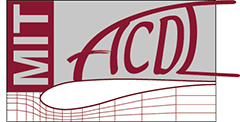Abstract:
Models of reduced computational complexity is indispensable in scenarios where a large number of numerical solutions to a parametrized problem are desired in a fast/real-time fashion. Reduced basis method (RBM) can improve efficiency by several orders of magnitudes leveraging an offline-online procedure and the recognition that the parameter-induced solution manifolds can be well approximated by finite-dimensional spaces. It solves a reduced problem posed in a surrogate space. A critical ingredient to guarantee the accuracy of the surrogate solution and guide the construction of the surrogate space is an error estimation procedure that typically involves the residual norm. Unfortunately, its efficient evaluation is delicate or outright infeasible.
We propose a new error indicator based on the Lebesgue function in interpolation theory. This error indicator circumvents the need for a posteriori analysis of numerical methods. In particular, it does not require computation of residual norms, and instead only requires the ability to compute the L1 norm of the RBM solution coefficients in the surrogate space. After introducing this new L1-based RBM, this talk will present some of our recent applications including to wave problems in solar cells, fractional partial differential equations, and a new iterative linear solver that converges faster than multigrid-preconditioned conjugate gradient method for symmetric and positive definite systems.

